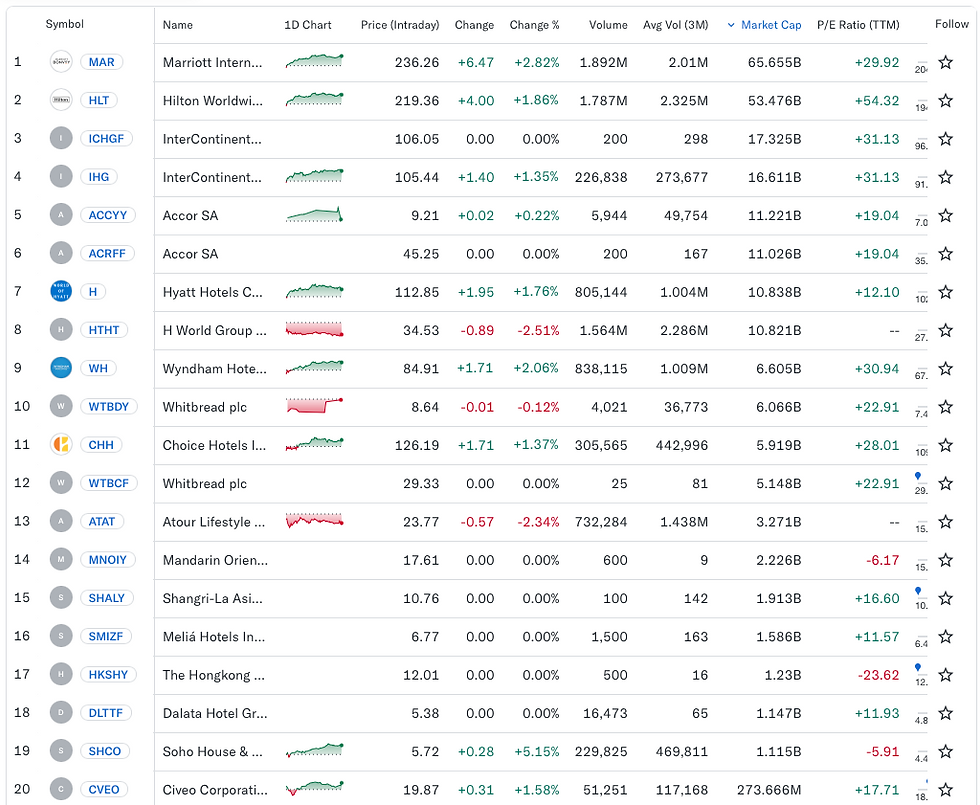Goldman Sachs Withdraws from Greek Hotel Venture Amid Development Challenges
- Silvia Sanchez

- Jul 1, 2025
- 2 min read

High Costs and Delays Force Strategic Retreat from Mediterranean Hospitality Market
In a significant shift in hospitality investment strategy, Goldman Sachs has pulled out of its high-profile hotel venture in Greece, following cost overruns and development challenges. The decision involved the sale of three resort properties in Halkidiki—originally acquired to establish a new regional hotel brand.
The exit marks a rare retreat for the investment giant and highlights the operational complexities of luxury real estate development in southern Europe.
💸 Background: A €100 Million Bet on Hospitality
In recent years, Greece has become a magnet for international hotel investment, driven by booming tourism, competitive pricing, and government support. Goldman Sachs entered the scene with ambition, investing nearly €100 million in acquiring and developing three beachfront resorts in the Halkidiki peninsula.
The long-term goal was to:
Establish a new upscale hotel brand targeting Mediterranean travelers
Expand into adjacent hospitality and lifestyle services
Capitalize on Greece’s post-pandemic tourism rebound
However, the venture quickly encountered difficulties that altered its course.
🧱 What Went Wrong?
Despite the promising backdrop, the project was hampered by:
Construction delays, including supply chain disruptions and local permitting issues
Inflated material and labor costs, exceeding initial budgets
Operational hurdles, such as unfamiliarity with local contractor networks and legal frameworks
According to sources close to the deal, Goldman Sachs opted to minimize risk and recoup value by selling the properties to Sani/Ikos Group, a well-established operator in the Greek luxury resort market.
📉 Strategic Implications
Goldman Sachs’s withdrawal is not just a property deal—it signals key insights into the hospitality investment landscape:
For global investors:
Hands-off strategies may fail in markets requiring local knowledge
Overreliance on projected tourism growth is risky without execution control
Rising construction costs in Europe are impacting hospitality ROI models
For Greek tourism:
The handover to a seasoned local group may accelerate project completion
The country remains attractive but complex for international capital
🌍 A Broader Trend in Hospitality Investment
Goldman’s exit reflects a growing trend among institutional investors reassessing their hotel portfolios. As the hospitality sector becomes more experience-driven and operationally intensive, firms without industry-specific expertise may opt to partner, divest, or restructure their assets.
The move also echoes a wider pattern:
Real estate funds are moving toward mixed-use developments with more predictable returns.
Asset-light models (franchise and management-only) are preferred by large hotel chains.
Local operators are regaining prominence due to regulatory and cultural fluency.
🤔 What Does This Mean for the Industry?
While the sale represents a setback for Goldman Sachs, it is not necessarily a negative signal for the region. On the contrary, the involvement of Sani/Ikos Group could ensure the project's success.
For the broader industry, it’s a reminder that:
Capital alone does not guarantee successful hospitality ventures
Execution risk is a critical factor in hotel development
Partnerships with regional operators can mitigate costly missteps
✅ Key Takeaways
Goldman Sachs sold three resorts in Greece after investing nearly €100M.
The move followed construction delays, rising costs, and operational complexity.
The buyer, Sani/Ikos Group, brings local expertise and could fast-track development.
The case illustrates the need for localized strategies in global hotel investment.




Comments